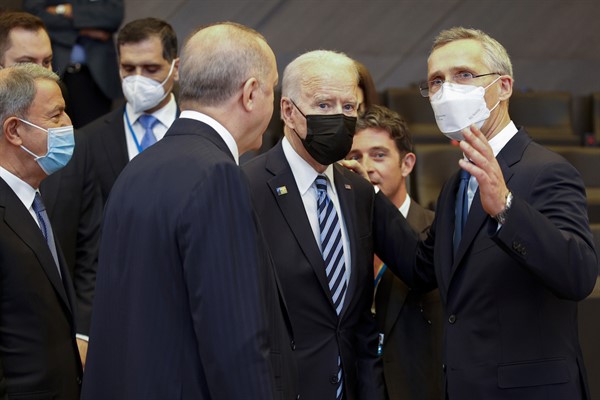Tensions within NATO over the past two decades have led some to assert that the old military alliances of the 20th century are a thing of the past. Soon, the argument goes, they will give way to looser, ad hoc groupings like the Quadrilateral Security Dialogue, or Quad, comprising Australia, India, Japan and the United States; the AUKUS security pact among Australia, the United Kingdom and the United States; or other “coalitions of the willing” formed to address specific concerns, like those that intervened in Kosovo, Afghanistan, Iraq and Libya.
To be sure, the past 30 years have punched some holes in the web of Western alliances. Pacific alliances, in particular, have been in flux ever since the late 1980s, when the U.S. informally abandoned its obligations toward New Zealand under the ANZUS treaty, which had been signed 35 years earlier to protect the Asia-Pacific—initially against a possible resurgence of Japanese militarism, then against communism. On the other side of the Pacific, the 1947 Rio Treaty, a Cold War-era collective defense agreement signed by 19 countries in the Americas, has lost some of its heft. In 2002, Mexico withdrew to protest against U.S. policies in Iraq, followed a decade later by Bolivia, Ecuador, Nicaragua and Venezuela, whose governments deemed the alliance anachronistic. (The first three never formally withdrew and the fourth came back in 2019.) France, meanwhile, has updated its own defense agreements with eight of its former African colonies, and no longer commits to automatically defend seven of them from attack.
Even where older alliances remain intact, a rising chorus of voices expresses skepticism about their utility, strength and credibility. Former U.S. President Donald Trump, in addition to decrying the United States’ disproportionate contributions to NATO, also publicly questioned whether Washington should even defend one of the alliance’s members, the “tiny” and “aggressive” country of Montenegro. French President Emmanuel Macron also famously questioned the group’s efficacy in 2019, when he claimed that it was at risk of experiencing “brain death.” Recent spats between Turkey and its NATO allies have also destabilized the group, leading many to wonder if Ankara would—or should—remain a member.

